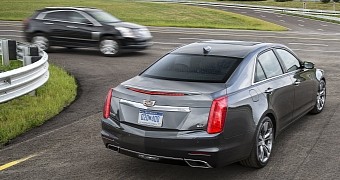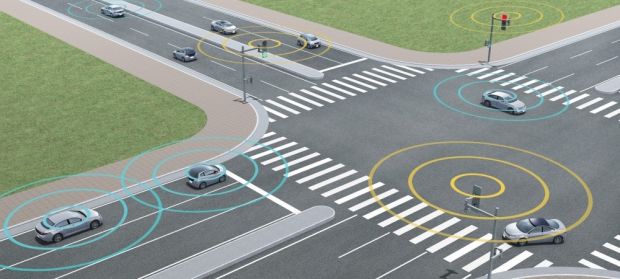A recent study by a Dutch researcher from the University of Twente shows that hackers can track smart cars with very low costs and quite a high degree of accuracy.
The revelation comes after Jonathan Petit, researcher at the University of Twente and Principal Scientist at Security Innovation, installed two WiFi sniffing stations on the university's campus, and tracked a test smart car.
These two WiFi sniffers were built around the new V2X technology that allows smart cars to talk to each other or send data to equipment or systems on the side of the road.
V2X is meant to provide a way for cars to avoid accidents
This technology is poised to be integrated into a series of upcoming car models and is the automotive industry's attempt at creating a smart computer network that will allow cars, drivers, and authorities to detect the position of other vehicles to avoid crashes, traffic jams, or stolen vehicles.
V2X works by broadcasting messages ten times per second from each car, using the 5.9 GHz portion of the WiFi spectrum (802.11p). Technically, these messages were designed to be anonymous and not share any details about the car, like license plate, model, make, speed, position, and driver details.
According to Mr. Petit, even if they don't reveal personally identifiable information, these messages do have a digital signature that is unique to each car, which his WiFi system was able to track.
His experiment consisted of installing two WiFi sniffers in two intersections on the Twente University campus and putting a V2X transmitter inside a regular test car.
After a period of 16 days and after these 2 meager receivers collected only 3% of the V2X broadcasted messages (40,000 out of 2.7 million packets), when this data was compared to the car's path, it surprisingly revealed that 78% of the time Mr. Petit was able to say in which part of the campus the car was located.
"Burglars could wait until all police vehicles are outside of a certain area before attempting a robbery," says Jonathan Petit for IEEE's Spectrum magazine, also adding that, by increasing the number of WiFi sniffers, accuracy will also go up.
Costs for this type of attack are expected to go down
Additionally, he also says that, even if a WiFi sniffing station currently costs around $550 / €495, he believes that criminals could easily create their very own kits using basic (cheap) components like a Raspberry Pi chipset, battery, WiFi radio, and a simple SIM card.
This means that these tracking stations can be made to fit inside very small spaces, and dropped inside intersections without anyone ever noticing their presence and real purpose.
As a countermeasure, both the US National Highway Traffic Safety Administration and European authorities have proposed that V2X emitters use pseudonyms when signing the broadcasted messages, which are to be changed every five minutes.
Petit says that, while this may deter some attackers, adding 50% more WiFi sniffers to their network should allow them to bring accuracy back up at acceptable, usable levels.
This takes the attack vector out of state-powered threat groups and government agencies and allows anyone with particular interests in this field to track smart cars equipped with V2X transmitters.
Mr. Petit will also present his findings at the upcoming Black Hat Europe 2015 security conference, and has already been in contact with carmakers to help them create a way to improve smart car security/privacy.

 14 DAY TRIAL //
14 DAY TRIAL // 

